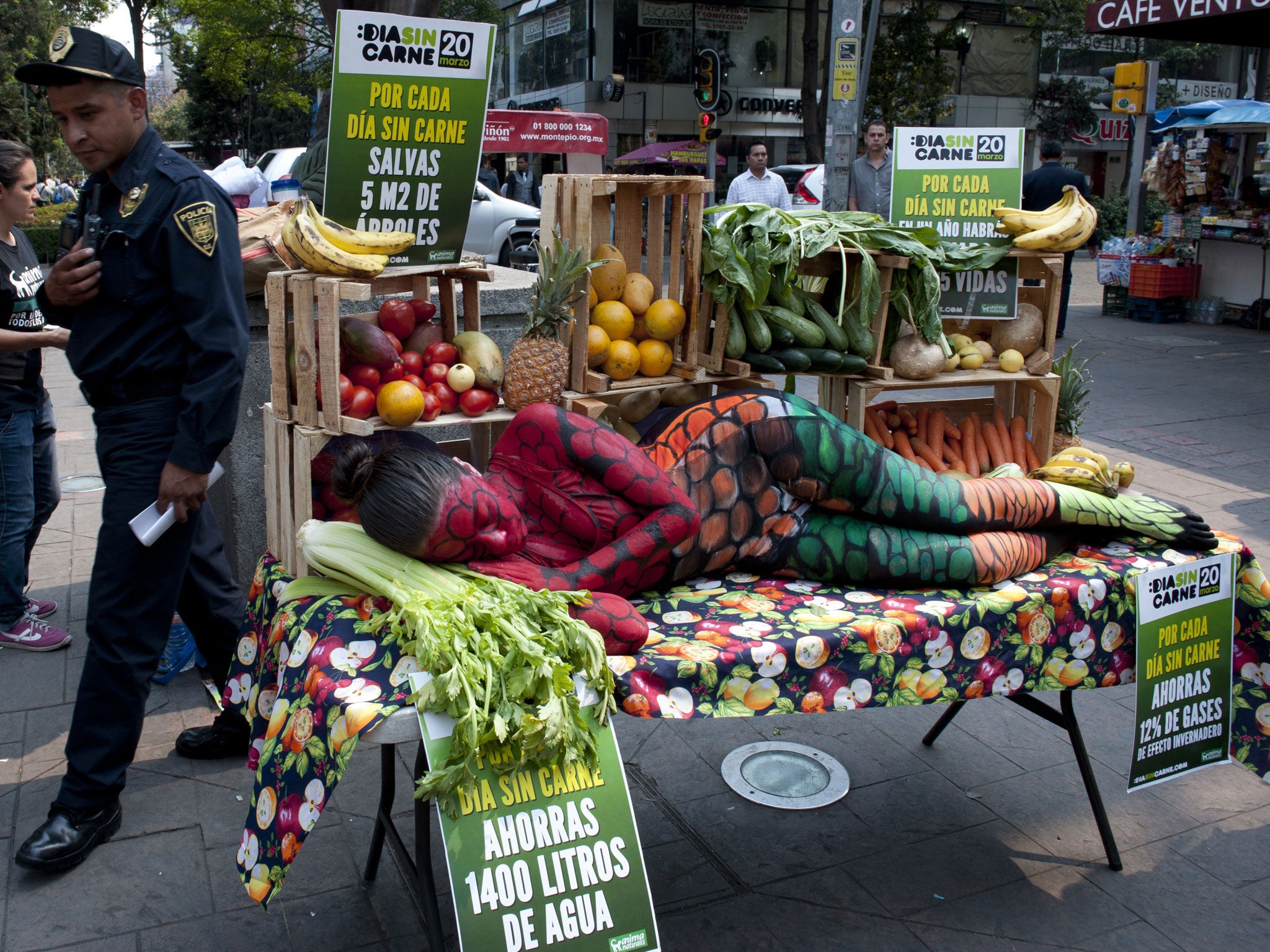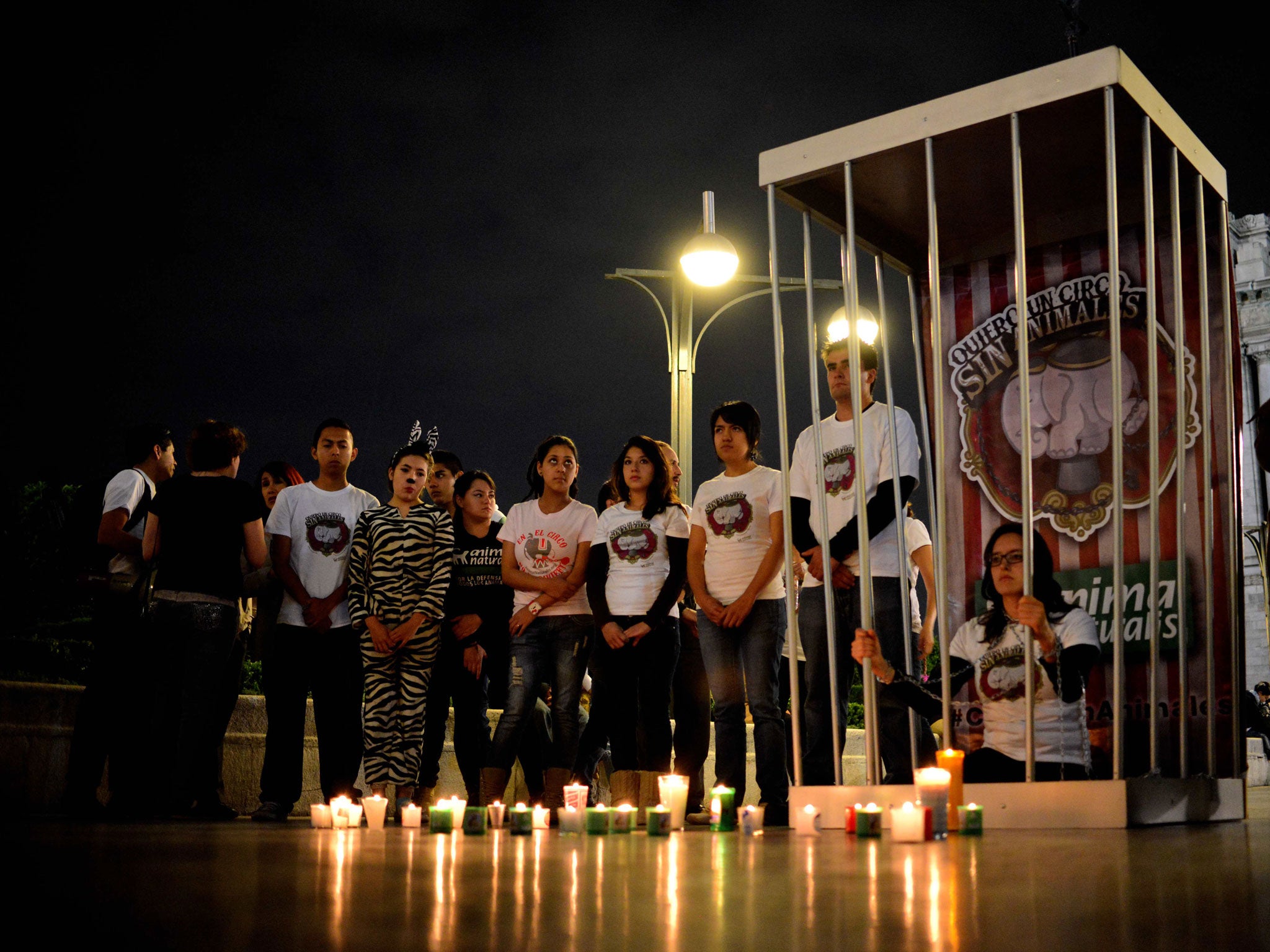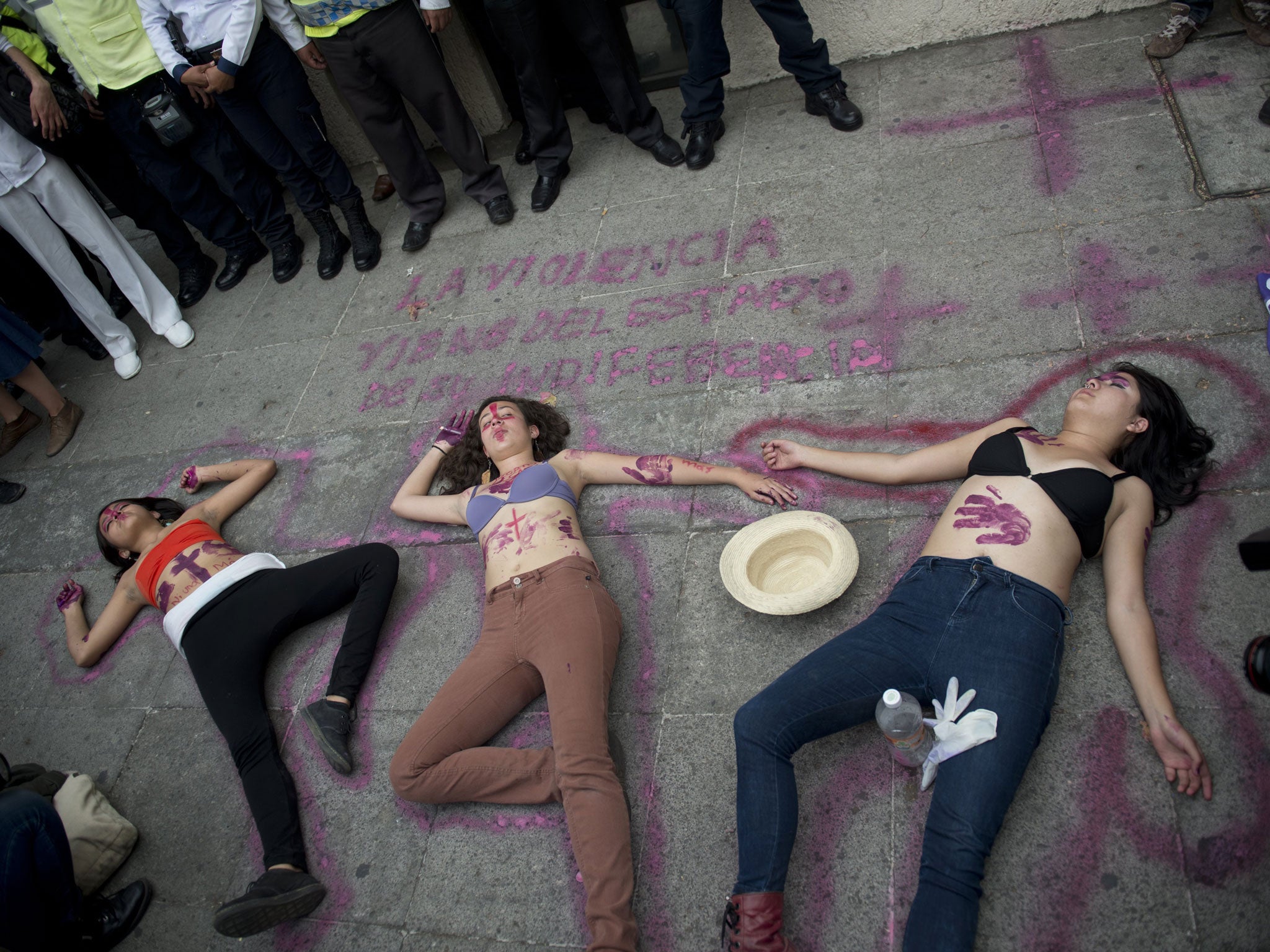Activism in Mexico City: What do we want? Another chance to shout protest slogans in the street!
From vegetarianism to drug lords, when it comes to demonstrations, no one can match the residents of Mexico City for their devotion to activism, as Joshua Partlow discovered when his neighbours went on the march against parking meters

Your support helps us to tell the story
From reproductive rights to climate change to Big Tech, The Independent is on the ground when the story is developing. Whether it's investigating the financials of Elon Musk's pro-Trump PAC or producing our latest documentary, 'The A Word', which shines a light on the American women fighting for reproductive rights, we know how important it is to parse out the facts from the messaging.
At such a critical moment in US history, we need reporters on the ground. Your donation allows us to keep sending journalists to speak to both sides of the story.
The Independent is trusted by Americans across the entire political spectrum. And unlike many other quality news outlets, we choose not to lock Americans out of our reporting and analysis with paywalls. We believe quality journalism should be available to everyone, paid for by those who can afford it.
Your support makes all the difference.Juan Manuel Contreras, a church singer and laid-off electrical supply worker, had been honking his car horn and shouting through a megaphone out of the window for half an hour when he turned to me with a question one might only address to a newly arrived foreigner in Mexico.
“Is this your first battle?”
In Mexico, it was. Democracy here is practised in the street and very much out loud. Seemingly every day someone is protesting about something, chanting grievances, thrusting banners, announcing “yes we cans”, even if they probably can’t.
In the past month, Mexican football players wore brown paper bags over their heads to protest at unpaid wages. Topless women with blue-paint handprints over their breasts marched for women’s rights. Jugglers, dancers and clowns raged against a new rule banning animals from circuses.
They protest at Mexico’s oil policies, US immigration rules, rising subway prices and education reform. They have marched in opposition to drug lords’ rampant killing and kidnapping, and in opposition to the arrest of said drug lords. They block toll booths. Airports. Roads.
There are thousands of protests each year in Mexico City alone: hunger strike; prayer vigils; caravans. Paseo de la Reforma, the main road through downtown Mexico City, is as much an eight-lane highway as a canvas for creative protesting.
So when I heard chanting coming down my normally quiet, cobble-stoned street in the Coyoacan neighbourhood, I rushed outside to see what was arousing my neighbours.

Parking meters. Well, not the most dramatic cause, perhaps, but a decent introduction to democracy Mexico-style.
The city government had made the opening gambit. In early February, at night, my neighbours said, a government contractor came in and started painting white parking spaces on the rustic colonial streets of Coyoacan. The neighbourhood is one of Mexico City’s oldest, an historic barrio where Spanish conquistador Hernan Cortes once lived during the 16th century, Frida Kahlo and Diego Rivera painted, Octavio Paz wrote essays and Leon Trotsky was stabbed with an ice pick.
Along with the new parking spaces, they began digging holes to install more than 300 parking meters, which would charge about 35p an hour throughout a neighbourhood where residents have been accustomed to parking for free. Protest time.
The protest leaders started a Facebook page to organise demonstrations, post photos of their gatherings and pass along media coverage of their efforts. Fliers were slid under doors and windshield wipers. Both sides began gathering signatures – which stand about 10 to 1 in favour of stopping the parking meters.
When I went outside to join the march, I noticed the cause had been taken up by old and young alike. A young woman painted her arms and legs in anti-parking meter slogans. A man with thinning hair played a trumpet and a little boy who came up to his mother’s waist was banging a drum.
“Neighbours, wake up, the parking meter is at your door!” they chanted.

Some of the complaints about the parking-meter plan are ideological, that the government is privatising the streets at the expense of the neighbours. Others are aesthetic: “The parking apparatus is an ugly green colour that has nothing to do with the architecture here,” Luis Manuel Menendez, a pharmaceutical company owner, said during a protest. “This is horrible.”
Rodrigo Mejia, a 27-year-old IT professional who had joined a car-caravan protest, had more brass-tacks reasons for his opposition.
“I live here and I don’t want to have to pay to park my car,” he said.
I was out of town during the early days of the battle, when neighbours tried to rip up some of the parking-meter bases that had been partially installed. On 28 February, residents blocked one of the main thoroughfares, Miguel Angel de Quevedo, for more than an hour.
The next day, the government upped the ante, sending scores of riot police with black shields and plastic face guards to the neighbourhood. The Facebook page lit up with photos and messages “No a la agresion!!!” “No a la violencia!” According to witnesses, and the extensive coverage by neighbours’ iPhones, the riot police shoved and jostled some of the protesters.
Neighbourhood president Mauricio Toledo, who has been cast as resident villain in this drama (“Toledo, understand, the streets are not for sale!” and “Mauricio Toledo, he is a pickpocket!” are among the movement’s mantras) has said that the project was not his decision but that the parking meters will improve the neighbourhood, raise revenue and will be installed. He has refused to talk to the protesters (and declined an interview).
In the days after the street scuffle, the riot police stood guard at each hole in the ground and construction surged forward. But soon Mexico’s National Institute of Anthropology and History weighed in, saying that as Coyoacan has been designated a “zone of historic monuments,” the organisation needed to sign off before the parking meters could be installed. The project’s application was therefore “incomplete”, it said in a statement, and so the parking-meter plan would be “immediately suspended”.
The battle has now reached a stage of wary détente, pending a historical review. The protesters have won an audience with the local government, and the parking-meter project is on hold, for now. Which does not mean protests have stopped. Nearly every evening, my neighbours gather to make human chains, caravan in honking cars, or march chanting through the streets. There are anti-parking meter signs hanging all over now, and residents clap and give the thumbs up when their protesting brethren march by.
The fighters believe they’re still a long way from victory. But at the very least, one said, “they can hear us now”.
Yes, we can.
©The Washington Post
Subscribe to Independent Premium to bookmark this article
Want to bookmark your favourite articles and stories to read or reference later? Start your Independent Premium subscription today.
Join our commenting forum
Join thought-provoking conversations, follow other Independent readers and see their replies
Comments